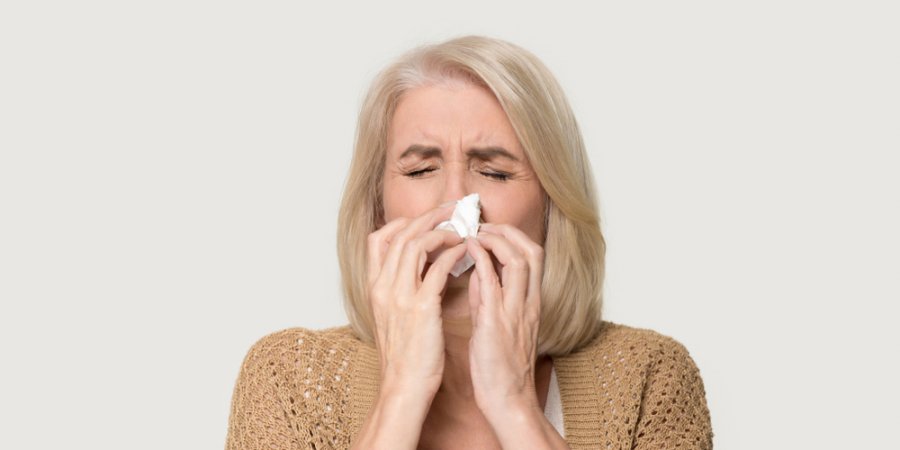

What causes an itchy nose ?
An Itchy Nose Can be caused by various things, both biological and environmental, although allergies are the most common, can make a nose feel itchy or irritated.
Let's take a look at the most common causes of an itchy nose and why they occur:
Allergies
Allergies are a well-known cause of an itchy nose. They occur when the body mistakes pollen as a threat and attempts to expel it from the body with an immune response.
Rhinitis and Sinusitis
Rhinitis is a term used for inflammation of the nose, while sinusitis is inflammation of the sinuses. Both of these conditions caused by a viral or bacterial infection.
Eczema
An itchy nose can be the result of irritation like eczema. It can occur anywhere, including on, under and around the nose. The condition is characterized by the development of itchy lesions on the skin.
How do allergies cause an itchy nose ?
Allergies cause an itchy nose, when the immune system releases chemicals like histamine in response to the allergen. This can lead to swelling, congestion and a burning sensation.
Signs and Symptoms
Itchy Nose is considered a symptom in and of itself. Those who are sensitive to airborne substances such as dust mites, mold spores, pet dander, and pollen develop an itchy nose. Itchy nose caused by allergies can be identified by the following signs:-
Redness
Itching and Rubbing often causes inflammation and redness around the nose. This is a common symptom for most allergies.
Nasal Congestion
Allergic reactions cause the nasal passages to swell with fluid, resulting in a stuffy or congested nose. This can make it difficult to breathe.
Runny Nose
The nasal inflammation brought on by allergies can increase mucus production, leading to a runny nose. This discharge may be clear and watery or thick depending on the allergies.
How is a Runny Nose Treated ?
In most cases, runny noses go away on their own. Generally, they don’t need treatment. But there are exceptions, including :
# sinus infections: Sinus infections can go away on their own a healthcare provider may prescribe antibiotics, oral or topical decongestants or steroid.
# Chronic Rhinitis: Treating a runny nose in chronic rhinitis involves using medications like antihistamines, nasal corticosteroids, decongestants, anticholinergic nasal sprays to reduce symptoms.
